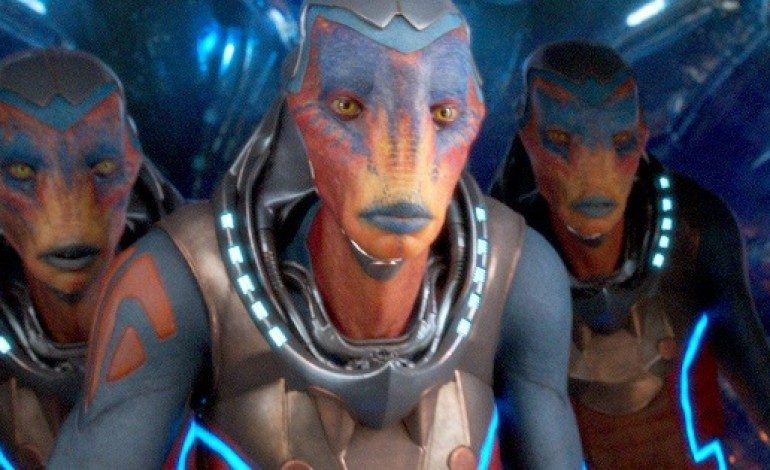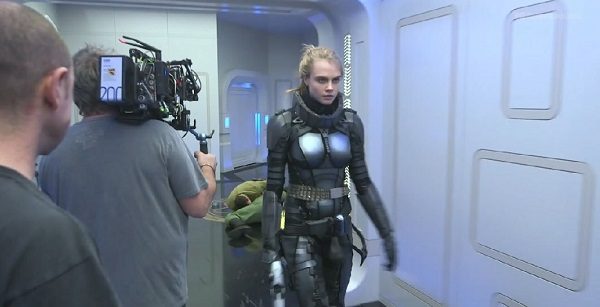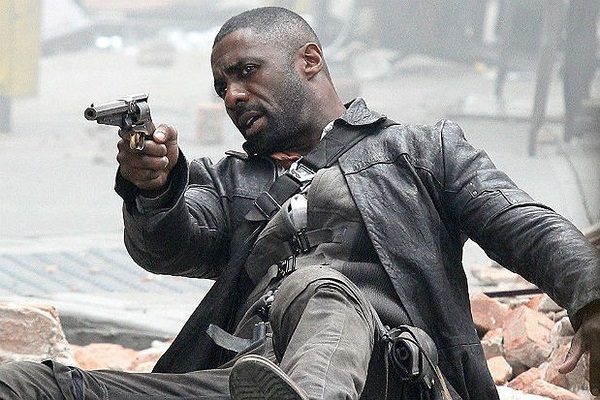

2017 is one of the worst movie years in recent memory, and a big reason for that is the constant failure of major franchises. New and old series alike have consistently disappointed, critically and commercially. While there are many excuses for why these films fail, and many increasingly obvious trends that don’t seem to go away (as presented with gusto in Alien: Covenant) the simplest explanation is often the best – they simply aren’t that good.
The past month has brought us two more huge bombs: Luc Besson’s Valerian and the City of a Thousand Planets and Nikolaj Arcel’s adaptation of Stephen King’s epic literary saga, The Dark Tower. Despite both being blockbusters with clear aspirations for sequels upon sequels (and even a TV show for one that, let’s face it, won’t happen), they both come from entirely different places – one’s a $200 million+ labor of love, while the other is a ~$60 million flop made by a studio committee banking solely on brand recognition. Yet each ended up in the same garbage pile. Why? How? Let’s compare.
Pedigree
Valerian – Luc Besson, who wrote and directed the film, clearly has a genuine love for the source material, a French graphic novel Valerian and Laureline that ran from 1967 to 2010 (though never really made waves in the United States). His best film, The Fifth Element, is clearly and admittedly a test run for this specific property. With so many filmmakers and producers fraudulently trying to convince us how much each property means to them, it’s refreshing to believe that this is Besson’s lifelong passion project. His unconventional approaches towards funding the ridiculously expensive film puts it more in line with an independent film than a conventional blockbuster.
Unfortunately, there can also be too much love for source material. There are a lot of elements in the film (maybe most of the elements of the film) that would probably make sense if we had context from the actual comics. Technology, alien races, and planets probably have an extensive history within the Valeriverse, but Besson throws in so much so quickly that without a background, it’s hard to get a firm grasp on any of it.
The Dark Tower – Hollywood has attempted to make a version of Stephen King’s The Dark Tower since the 1990s, and with the length of that gestation time, it’s not altogether surprising that this film feels like something cobbled together just so they could finally get it done. (Similar to 2015’s Fant4stic.)
With constant behind the scenes meddling and many masters to serve, it was more than predictable that the movie lacks any sort of vision. At some point Ron Howard was slated to direct, and he’s still listed as a producer. One of the co-writers is Akiva Goldsman – best known for Batman and Robin, but also the undeserved Oscar winner for Best Adapted Screenplay for Ron Howard’s A Beautiful Mind. Over the past decade, he has been responsible for forgettable fare such as Winter’s Tale (which he also directed), The 5th Wave, Rings, and Transformers: The Last Knight. It’s hard to believe he has a genuine connection to any of those properties, and his lack of personal investment is evident in The Dark Tower as well. Maybe director Nikolaj Arcel (the original The Girl with Dragon Tattoo, A Royal Affair) read The Dark Tower at some point, but its clear that the source material didn’t resonate with him, or if it did, it stopped doing that a long ago.
While Besson might have put in too much of Valerian, the people behind The Dark Tower took too much out. (Though I should note that I am only passingly familiar with the story.) This is a movie without identity of its own and lacks any indication of why this franchise is supposed to be a big deal. For a book series with legions of fans, it’s remarkable how nothing about the adaptation feels at all distinctive.
Winner – Valerian
Characters
Valerian – The weakest part of Valerian is the characters, namely the titular character, Valerian (Dane DeHaan). Yes, it’s been commented on in pretty much every article written about the film, but DeHaan is such a poor casting choice that almost single-handedly brings down the entire movie. The character of Valerian needed to be brash and fun, with just the right amount of stupid luck – not a character who is more blasé than a mumblecore darling. No one else in the film is as bad as DeHaan (though Clive Owen is a distant second), but without a pivot around which to center the fantastical movie, it’s hard for anyone (or anything) to excel. Cara Delevingne, as his sidekick Lorelei, fairs somewhat better. She has a greater ability at interacting against entirely CGI backdrops and characters and at playing to the goofiness of the situations, but she’s detrimentally hamstrung by her co-lead and their lack of chemistry.
Unexpectedly, Battleship‘s Rihanna, as a shape-and-clothes-shifting alien named Bubbles, gives the movie’s most notable performance as an alien prostitute. She feels a natural part of this world, as does Ethan Hawke as her pimp. Unfortunately, they are both underused (particularly Hawke) and their sequence is in a side mission that detracts way too much from the main plot.
The Dark Tower – The biggest strength of The Dark Tower is probably its characters, or rather, character. Idris Elba brings a world-weary solemnity to the gunslinger Roland Deschain that he gives the movie a depth and history it does not have anywhere else. Too bad it takes nearly a half hour to get him on screen.
The main character is really a young boy, Jake Chambers (Tom Taylor), who has persistent dreams about Mid-World (the alternate universe housing the titular Dark Tower) because of his psychic powers. Making an adolescent the main character in a nightmare world can work; we have countless movies from the 1980’s proving this is so. Unfortunately, The Dark Tower isn’t done in the style of Return to Oz, Labyrinth, The NeverEnding Story, etc. It’s not ‘seen’ from a child’s point of view, nor does it play on the fears of youth – as the upcoming It movie seems to be attempting – it has no real point of view.
It’s easy to believe that Matthew McConaughey as Walter O’Dim, the Man in Black might have been intimidating in a longer cut. However, with a 95-minute running time, he struts in, drawls something vaguely menacing, and struts out. He is given no time to measure a situation, play out his sadistic mind games, or really relish chewing the scenery.
Winner: The Dark Tower
Ramblings on Plot and Visuals on Page 2.


